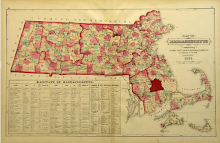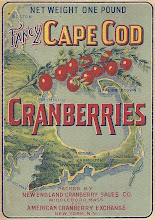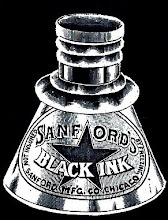century, local evangelical Protestant churches maintained a relatively rigid control over their membership. Worshippers desirous of joining a particular church were vetted by a council of church members who evaluated the applicant's suitability, sincerity and religious views, and decided whether the applicant could be a member. When a member wished to relocate and join another church, they were expected to apply for dismissal in the same manner, which the governing body of the church would either grant or not grant.
"Individuals become members of the church, on application, and on giving evidence of the above named qualifications [such as conversion], by election…. A person believes he is converted, and, as is common with those truly converted, he desires to join the church. He expresses his wish to a member of the church, who proposes him. Or some member believes him converted, and suggests that it is his duty to join, and, with his consent, proposes him. He then appears before the church, and relates his Christian experience. Any member proposes such questions as seem suitable to obtain an understanding of his views. He then retires, and if no member objects to him, he is elected to come into full membership…. It is the duty of all members removing from the vicinity of the church, to take letters of dismission to other churches of the same denomination.” [Haynes: 227, 230].
While the practice may appear strict, members were understood as entering into a solemn covenant with both God and each other. Consequently, joining or leaving a church were decisions not to be undertaken lightly and were to have the full consideration of the church.
It was within this context that Maria Otis Alden of North Middleborough asked to be dismissed from the North Middleborough Congregational Church in late 1849. Miss Alden, the youngest child of Job and Lydia (Shaw) Alden of Middleborough, had joined the North Middleborough church on January 8, 1843, at the age of 27 in the company of several other Middleborough residents in a general revival which had commenced earlier the previous year. Apparently, over the course of the following few years, Miss Alden became dissatisfied with and "alienated" from the church, so much so that on November 15, 1849, she wrote a letter to Reverend Philip Colby, pastor of the church, applying for dismissal. Her failure to provide the North Middleborough church with either the reasons for her request, or the name of the church she proposed to join following her dismissal, prompted a reluctance on the part of the church to grant her request. Subsequently, Colby, penned the following letter to her in an effort to convince Miss Alden to be more forthcoming with her reasons for requesting a dismissal:
No. Middleboro', Nov. 19th. 1849.
My dear Friend,
Your letter of the 15th inst. I just received. I laid your request for a dismission &c. before the church immediately after I received it. The ch'h voted to lay it on the table - ready at any time to be called up.
 I expected that you would of course, call upon me to know the result of your application, in which case I could have had opportunity to explain or advise, if advice was sought, and I was competent to give it.
I expected that you would of course, call upon me to know the result of your application, in which case I could have had opportunity to explain or advise, if advice was sought, and I was competent to give it.
The church probably considered the solemn covenant obligations they were under to you, to watch over you for your best good, incompatible with granting your request to be dismissed without giving any reasons, and to go, no-body could tell where - as your request was to "go where you pleased".
I am not aware that any church of Christ is accustomed to dismiss and recommend their members in so loose and indefinite a manner as this.
Some good reason or reasons should be given; and the church should have a pledge, as far, at least, as the selection of some ch'h unless in case of going abroad to reside and then an evangelical denomination should be named - that the dismissed member will become connected with an evangelical church.
I am ever ready to attend to any suitable request in your case, as well as that of any other member. And will have your original request call[ed] up, at a suitable time, if you persist in it. But, do not know that it would be of any use unless you will appear and offer reasons, and designate some church which you wish to unite with, and be under their watch and care.
As you live among us, and are under covenant engagements to worship and commune with us, it seems to me that you had better review the matter and consider it prayerfully and thoroughly before you leave the fold into which you united with the most solemn vows.
At the same time, as far as my own feelings are concerned - and I speak here only for myself - but have no doubt I speak the language of the church - I feel and act upon the broadest principles of true liberality and charity.
I have been pained at your apparent alienation, and the course you pursue and am not aware of any occasion I have given for it. I hope as an heir of the grace of[torn] you will exercise that charity which hoping all things - and yet remain in harmony with us: and that your path may be "like the shining light that shineth more and more to the perfect day." -
Very affectionately, yours truly.
Philip Colby

Following the receipt of this letter, Miss Alden appears to have met with Colby to explain her reasons, for on record is her dismissal from the church dated November 30, 1849, "to Evangelical Church her choice."
Illustrations:
Rev. Philip Colby to Miss Maria O. Alden, letter dated at North Middleborough, MA, November 19, 1849.
The letter which Colby wrote Maria O. Alden regarding her request for "dismission" from the congregational church at North Middleborough.
Rev. Philip Colby to Miss Maria O. Alden, letter dated at North Middleborough, MA, November 19, 1849.
The first page of Colby's letter displays his fine legible hand. In the letter, he writes to persuade Miss Alden to reveal her reasons for requesting a dismissal from the North Middleborough Congregational Church.
Signature and Seal, Rev. Philip Colby
Colby (1779-1851) served as the pastor of the North Middleborough Congregational Church from 1816 until his death in 1851.
Sources:
Letter, Rev. Philip Colby to Miss Maria O. Alden, North Middleborough, MA, dated November 19, 1849 (author's collection).
Emery, S. Hopkins. The History of the Church of North Middleborough, Massachusetts. Middleborough, MA: Harlow & Thatcher [printers], 1876.
.
Haynes, D. C. The Baptist Denomination: Its History, Doctrines, and Ordinances. New York, NY: Sheldon, Blakeman & Co., 1856, pp. 227, 230.
.
Townsend, Charles D. History of North Congregational Church, United Church of Christ, North Middleborough, Massachusetts. Sarasota, FL: Aceto Bookmen, 1982.
 Up through the 20th century, local evangelical Protestant churches maintained a relatively rigid control over their membership. Worshippers desirous of joining a particular church were vetted by a council of church members who evaluated the applicant's suitability, sincerity and religious views, and decided whether the applicant could be a member. When a member wished to relocate and join another church, they were expected to apply for dismissal in the same manner, which the governing body of the church would either grant or not grant.
Up through the 20th century, local evangelical Protestant churches maintained a relatively rigid control over their membership. Worshippers desirous of joining a particular church were vetted by a council of church members who evaluated the applicant's suitability, sincerity and religious views, and decided whether the applicant could be a member. When a member wished to relocate and join another church, they were expected to apply for dismissal in the same manner, which the governing body of the church would either grant or not grant. I expected that you would of course, call upon me to know the result of your application, in which case I could have had opportunity to explain or advise, if advice was sought, and I was competent to give it.
I expected that you would of course, call upon me to know the result of your application, in which case I could have had opportunity to explain or advise, if advice was sought, and I was competent to give it. Following the receipt of this letter, Miss Alden appears to have met with Colby to explain her reasons, for on record is her dismissal from the church dated November 30, 1849, "to Evangelical Church her choice."
Following the receipt of this letter, Miss Alden appears to have met with Colby to explain her reasons, for on record is her dismissal from the church dated November 30, 1849, "to Evangelical Church her choice."





















+of+Smoky+Mountains+018.jpg)
0 comments:
Post a Comment